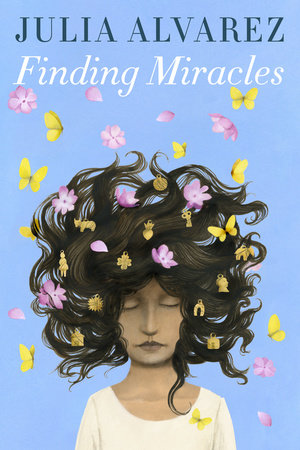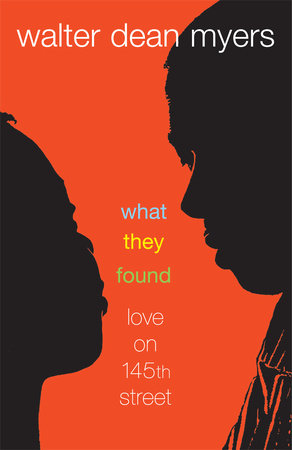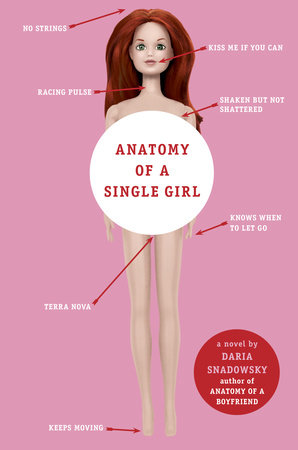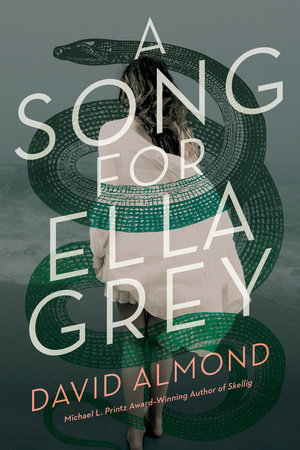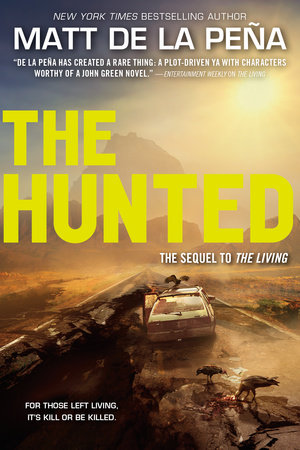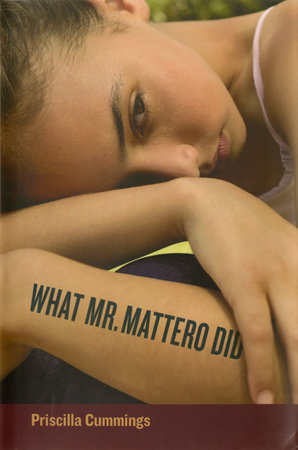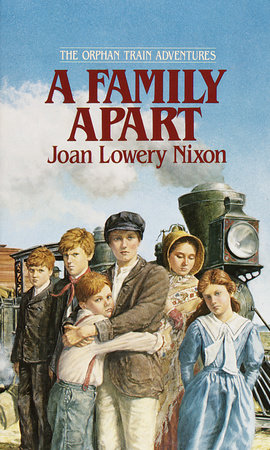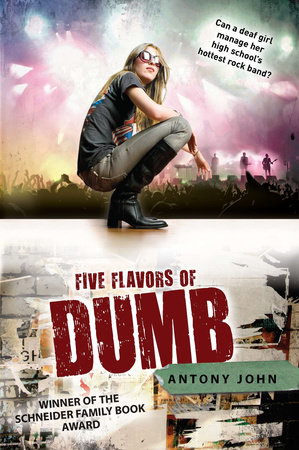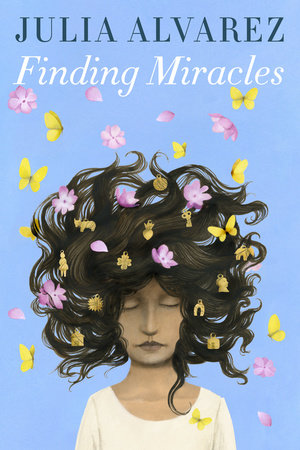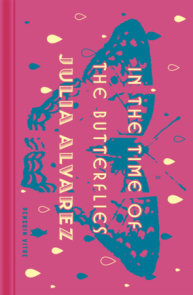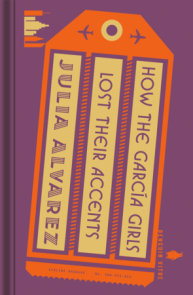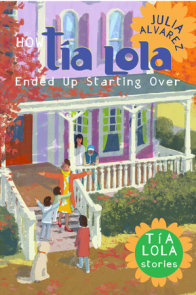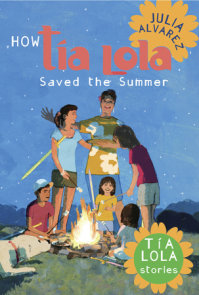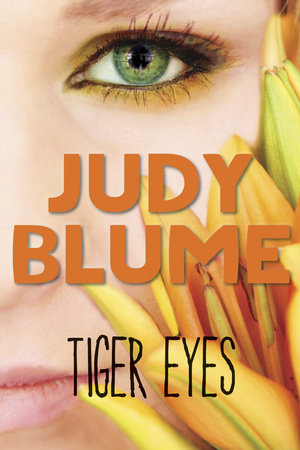Author Q&A
Q. Most of your previous novels deal with immigrants from or residents of the Dominican Republic. In Finding Miracles, though, you choose to leave Milly’s birth country unnamed. Why?A. I really did not want to specify Milly’s birth country. My point was to underscore the fact that throughout the second half of the twentieth century, Latin America was rife with dictatorships, police states, horrible repressive regimes. (In the late 1970s, for example,only three countries in Latin America had freely elected governments.) Thousands upon thousands of people lost their lives, and the verb form “to be disappeared” entered our vocabulary. People who protested, many of them young students, were rounded up, tortured,killed. Many children were left orphans or lost their childhood altogether. By not specifying the country, I thought I would make it harder for readers to dismiss how pervasive this situation was. (“Oh, that only happened in Guatemala or Chile or El Salvador.”) This was mass genocide, not over in Nazi Germany or Saddam Hussein’s Iraq, but right here in our American hemisphere, with dictators and regimes often put in place and supported by our very own United States. A dark period in our American history that we have still not fully faced.What was hard was inventing a geography and culture that could be any number of Latin American countries but none specifically!By the way, at first my editor felt it would not work to leave Milly’s birth country unnamed. Most times I listen to her (and she is usually right!), but this time, I held fast to my original notion. It just so happened that as I was working on Finding Miracles, I read Ann Patchett’s wonderful novel Bel Canto, which takes place in an unspecified Latin American country. It turned out to be one of my favorite novels. I mentioned it to my editor as “proof” that it could be done. Of course, by then she was convinced that I could pull it off.This, too, I’ve learned as a teacher and mentor of young writers when they ask me, “Can such and such be done . . . ?” or “Is it okay to . . . ?” I tell them: anything is possible in a story if you can pull it off, if you can get away with it!Q. Throughout the book, Milly feels simultaneously detached from and drawn to her birth country. Having left the Dominican Republic for the northeastern United States at a young age, did you experience a similar sense of conflict over which place was your “real” home?A. I certainly did experience very strong homesickness when I arrived in the United States at the age of ten. Although I had been born in the U.S., my parents had returned to their birth country when I was three months old, so the Dominican Republic was my home; my extended familia were all there; Spanish was my native tongue. That first year in New York, I couldn’t get used to the cold, the English language, the prejudice of some of my classmates at school who chased my sisters and me around in the playground, calling us spics and telling us to go back to where we came from. What happened, though, was that slowly I began to adapt to my new country. I learned English. I became a reader. I dreamed of writing my own stories down. When I went back “home” to the Dominican Republic for vacations, I no longer totally belonged there anymore. I had changed, become Americanized. But then, once I was back on USA soil, I also didn’t feel like I was totally American. In a sense, I was a person without a country, which made me seek the company and community of books. Every writer, I believe, feels that through story we are all connected, all one human family.Milly’s case is a little different from my own experience. She wants desperately to feel 100 percent U.S. American so as not to be different from her brother and sister, Kate and Nate, who are biological siblings and children of Milly’s parents. But she feels the absence of a part of her story that she has kept locked in her heart and that keeps tugging at the edges of her consciousness and prickling her skin in rashes! Like me, Milly is a hybrid, and she needs to include both parts of her story in order to be fully herself. But unlike me, Milly does not have a full-blown childhood experience of her birth country to give her a sense of what she is missing. Hers is a bigger blank than mine ever was.Q. You originally found success in the world of adult fiction. What prompted you to begin writing for young adults and children? Do you approach the writing process differently for your juvenile work? Do you find yourself exploring the same themes?A. About twelve, thirteen years ago, my husband, Bill Eichner, and I got involved in a project in the Dominican Republic. We visited a community of small farmers up in the mountains of the interior who were growing their coffee organically, under shade trees, in order not to deforest the countryside and poison the rivers. We wanted to help them out and so we joined their cause and bought up some abandoned farmland and started planting trees and coffee. We called the place Alta Gracia, after the national protector of the country, the Virgin of Altagracia, whose name means “High Grace.” We thought this appropriate for a place high in the mountains, a place that we hoped would bring grace to our local impoverished cooperative of farmers and all those who visited or who ended up buying our coffee.So far, so good–we were taking care of the land. But soon we realized that no one in the community of small farmers knew how to read or write, not the old people, not the middle-agers, not their children, not even the mayor and “authorities.” Human nature needed caretaking as well. So we decided to start a school on the farm to teach basic writing and reading skills.What better “textbooks” for new readers than children’s books, with their simple, straightforward stories, their eye-catching pictures? And so, as part of teaching literacy at Alta Gracia, I began reading a lot of children’s books. Many were translations of books originally written in English about USA experiences. I thought, why not write stories based on old legends popular among my neighbors? And so I wrote The Secret Footprints, about a tribe of women, ciguapas, who come out at night to hunt for food. Most recently, I wrote A Gift of Gracias: The Legend of Altagracia, about the Virgencita Altagracia, after whom our farm project, Finca-Fundaci—n (Farm-Foundation) Alta Gracia, is named.I don’t approach the writing process any differently when I am writing for young readers of all ages (the term I prefer to “children’s books” or “juvenile literature”). Good writing is good writing and hard work, no matter what age reader is going to read what you write. What I can say is that writing for young readers (of all ages!) raises the bar in terms of succinctness, clarity, story pacing. Children and busy campesino farmers aren’t going to sit still if your writing is longwinded or unclear or if the plot drags with too many asides or needless abstractions or cluttering distractions. So writing these books for young readers has actually sharpened my writing skills.As for themes: storytellers are all part of the human family. That said, we come from our different cultures and landscapes, and we bring our tribe’s experiences and songs to the long table of literature to which everyone is invited. And so there will be certain themes that will be common to any particular writer because of his specific place and time and tribe. Think of Robert Frost and his New England landscapes. Mark Twain and his bustling Mississippi River towns. Willa Cather and her Nebraska roots. So, whether I pitch my singing voice to a story for young readers or an adult novel or a poem or an essay, it will undoubtedly reflect my tribe’s adventures,which is a way of saying that certain themes will recur, a certain flame tree will crop up again and again, a wise older woman who tells wonderful stories will show up, book after book, sometimes called Chucha, sometimes T’a Lola, sometimes Do–a Gloria. . . . This is not to say that a writer can’t use her imagination to write about people and places that are different from her very own background. The imagination has amazing powers! But then that writer will have to do very good research so that, in a way, she becomes a native of that world she is trying to put down on paper.Q. What made you want to be a writer? Did you consider any other career path?A. I always say that I would never have become a writer had we not immigrated to the United States when I was ten years old. I admit it, prior to our arrival in New York, I was a terrible student. I was not a reader. Part of the reason was that my home culture was an oral culture. People told stories–and they were terrific storytellers, believe me! But it was not a literary culture. People just weren’t seen reading. Remember, too, that our government was a dictatorship. Books from which people might get “ideas” were banned. Readers were immediately targeted as intellectuals, dangerous individuals. So there were no incentives for being a reader. In my own family, I knew of two readers. One was an aunt who was an “old maid” in her twenties, and this was blamed on her reading. The other reader was my cousin, Juan Tomás. My grandmother, who herself never went past fourth grade, would worry that Juan Tomás was going to get sick because his nose was always in a book.I took the healthy route! No one could catch me with a book, not that there were any books around except for dull textbooks and my father’s medical books, with their disgusting pictures of skin rashes and oozing sores and organs that needed fixing. When we arrived in New York City, I felt homesick and alone. Thankfully, I had some wonderful English teachers and librarians, who put books in my hand and encouraged me to write down stories from my childhood that would otherwise have been lost. I discovered that while I was reading a book, I felt less alone. I had the company of all kinds of people of all ages from all over the world. Here was a world where no one was barred, no one was told on the first page: “Stop! Go back to where you came from!” Instead here was a portable homeland, and we were all welcome! I really think that is what set me on the path to being a writer: becoming a reader.I have often entertained fantasies of other professions, being a nurse (taking care of those who are ill, alone), being a farmer (growing things that nurture folks), being an activist for social justice (making the world a better place for us all). But what I’ve found, and why I love writing so much, is that I can pursue all these professions on paper. I can comfort people who feel alone, with what I write. I can nurture hungry minds and thirsty hearts. I can make the world a better place by changing, ever so slightly, the way a reader looks at the world.Q. What books inspired you as you were growing up? And what books inspire you now?A. I was not much of a reader growing up. (See above!) But my “old maid” aunt who was a reader did bring me back a book from a trip she took to the United States. It was The Arabian Nights, which is the story of a girl, Scheherazade, who lives in a kingdom where the sultan, who is full of hatred for women, takes a wife every night and then beheads her in the morning. Scheherazade’s father hides her in his library, where she reads all his books and learns thousands of stories! When she learns about what is happening to all thewomen in her kingdom, she decides she wants to help them. And so she begs her father to let her visit the sultan’s tent and see if she can change his mind. At first her father refuses, but finally he relents.And so, that first night when Scheherazade (I always did wish she had an easier name to spell and pronounce!) is taken before the sultan, she asks him if he’d like to hear one of her wonderful stories. “Sure,” he says, “it’s a while before sunrise.” But wouldn’t you know it, just as the sun is coming up, Scheherazade is smack in the middle of an exciting tale. She laments the fact that the sultan is going to miss out on the satisfying ending, since it’s her time to die.But no way is he going to let her die now. “You must finish your story tonight!” he commands. So Scheherazade is granted another day of life. The next night, she finishes her story, but it’s still not daylight, so she begins another one, which, of course, she is still telling when the sun comes up again. The sultan again grants her a dispensation–and this goes on for one thousand and one nights. By that time, the sultan has fallen in love with Scheherazade because of her wonderful stories, and his hatred has been transformed into love. He is a changed man. Scheherazade has not only saved the women in her kingdom and herself, but she has managed to change the sultan through the power of her stories.I loved this story. I was spellbound by Scheherazade’s ability to spin tales: Ali Baba and the forty thieves; Sinbad the sailor; Aladdin and his magic lamp . . . These are just a few of the thousand and one stories Scheherazade tells the sultan to save her life. Back in the Dominican Republic, I had a tall fourposter bed. I used to love to sit on that bed under the mosquito net or crawl under the bed with the bedskirt all around me and pretend that I was in the sultan’s tent and I had to think up a great story, or else. No pressure I’ve ever experienced as a writer can match the pressure I felt as a young girl of nine or ten to tell a good story to save my life.As for favorite books now, I have so many! I love poetry, novels, nonfiction books–anything well written can engage my attention. It can be a story in a cookbook or a poem about a snake or a tale about a girl who saves her life by telling stories. I’m not picky when it comes to good books. But if a book is not well written, I don’t care who wrote it–poof! It’s transformed into a doorstop or a coaster or an item in the recycle box!Q. As both an author and a longtime teacher of writing at Middlebury College, what advice do you offer young writers?A. What advice can I offer young writers? Most important of all is to be a voracious reader. How can you learn to swim without getting in the river? I’m astounded sometimes when a young student writer tells me that he is not into reading! How can you be a writer without being a reader–that’s like being a horseback rider but not really being into riding horses. Read, read, read. The best books are your best teachers!Another piece of advice is to develop the “habit of writing.” If I decided to write based on whether or not I felt like it on any given day, I would end up writing maybe only a handful of days a month. All kinds of things would get in the way: an invitation to lunch at a favorite restaurant, a beautiful day tempting me to go out on a bike ride, a cold that makes me feel under the weather. Most people I know have no problem with my being a writer, but they often feel annoyed when I am actually writing, because I’m not answering their phone call or going to the movies or going shopping with them.The point is that it’s hard just to get yourself to sit down and write. Like any other skill, you’ve got to practice it to become good at it. In fact, even after you become good at it, you’ve got to practice to stay in shape. I often compare writing to dancing. Say a dancer only did her floor exercises when she felt like it. Say a week went by when she did not feel so inclined. Then the day she does feel inspired, she tries to do a jet? and she pulls a muscle or she falls flat on her face. Writing also requires daily exercise of your “writing muscles.” If you don’t write for a week, when you sit down to write, you just don’t have the same agility as when you are at it every day, even if it’s only for an hour. Once you have developed the habit of writing, you don’t have to think about whether you are going to do it today or tomorrow or the next day. It’s just something you do, like having breakfast or brushing your teeth or watching TV.One of the ways to do this daily writing is to keep a journal. In other words, you don’t have to try to write a prizewinning poem or a chapter of a novel every day. Just write an entry about whatever happened to you today. Practice putting the adventures of your life into words, the little things you notice, the way people around you talk, the view out the window, the smells after a rainstorm, the taste of your mom’s apple crisp. Practice making your sentences reflect the rhythm of a scene. Imitate a paragraph you admire from your favorite book.And here’s a third piece of advice, a must for any writer: pay attention! Writing begins before you ever set pen to paper or put your hands on the keyboard. It’s a way of life, of being awake to the little things around you that you would otherwise miss. I do agree withHenry James’s advice to the young writer, “Be one of the people on whom nothing is lost.” It’s a great way to live, not just for writers, but for anybody: smelling the flowers–as the cliché goes–and touching them and tasting them, and even listening to them. Haiku are great little “finger exercises,” by the way. In order to write one, you have to pay close attention to the tiny things in your life. Not only that, but you have to choose the just-right word, since so few are allowed. It also helps that haiku are easy enough to compose even if you are far from pen and paper. Here are two favorites from the eighteenth-century Japanese poet Buson. Try a few yourself.That wren–looking here, looking there.You lose something?Asked how old he wasthe boy in the new kimonostretched out all five fingers.
